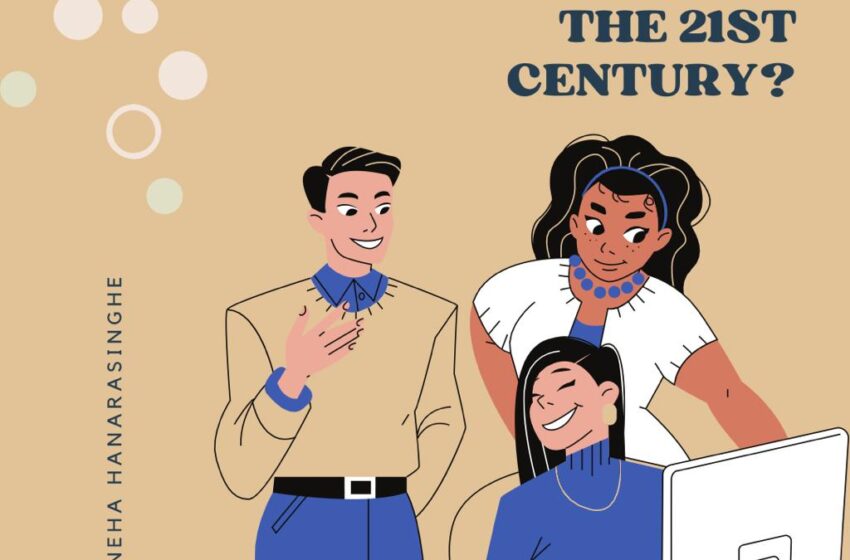Gender Discrimination
- Social Sciences
Neha Hanarasinghe
- January 20, 2023
- 209
- 6 minutes read

Gender discrimination/inequality refers to the unequal or disadvantageous treatment of an individual or group of individuals based on gender, it may also be referred to as sexism. It is the 21st century and we should not be experiencing gender discrimination, but unfortunately, we are.
What are the causes of Gender Discrimination?
Over the years, the world has gotten closer to achieving gender equality. However, it is estimated that it would take another century before true gender equality becomes a reality. So, what causes gender inequality?
One of the main reasons is the lack of education, this can also be interlinked to poverty because educated people are less likely to partake in gender discrimination. When their mindsets are not changed, they continue to live in the old times. Thus, following the old-age sexist traditions and norms. Hence, why they would agree that women should not hold the same power as men; some may go to extend of being misogynistic and hold a hatred towards women, while only viewing them to objects who are judged on appearance, sexual purity, sweetness and submissiveness.
In addition, the patriarchal setup plays a big role too. Our society is seen to be a male dominant one, for instance, mostly men are involved with politics, leadership roles in finance, IT and software development, vehicle technicians, mechanics and so on. Thus, they consider themselves to be superior to others. When there is a gender considering themselves to be superior, it becomes difficult for everyone to avail equal opportunities.
Furthermore, gender inequality also occurs due to cultural beliefs as well. Men are perceived as the major providers and protectors of a family while women are perceived to be only a supportive role and confined mostly to the domestic sphere. In Indian culture since very early periods, men have dominated women as a group and their status has been low in the family and society. The preference for sons and disfavor towards daughters is a complex phenomenon that still persists in many places. Sons especially in the business communities are considered to be economic, political and ritual assets whereas daughters are considered to be liabilities. Thus, anti-female social bias is the main cause of gender disparity in the Indian society.
Effects of gender inequality
Women nowadays have had to face the consequences of gender discrimination and inequality. This can be mainly seen with the gender wage gap. In many societies, there’s an inherent belief that men are simply better equipped to handle certain jobs and it is a known fact that working women are paid less than working men. Even with a higher educational level, women earn, on average, less than men do! Since the second half of the 20th century, women’s labor force participation has grown significantly; women are working longer hours and pursuing higher education in great numbers. However, despite the progress, significant wage gaps between men and women persist, particularly for women of color; and it is found that women of all races earn only $0.82/82 cents for every $1 and by men of all races, it translates to a gender wage gap of $0.18/18 cents.
Moreover, people can experience mental health conditions as a direct result of gender-based discrimination. Some of the psychological effects of gender inequality include higher levels of stress, anxiety, depression, and post-traumatic stress disorder (PTSD) in women and people of marginalized genders. Also, because to one gender seem to believe that they are superior, they tend to degrade, humiliate and make sexist remarks on women and gender non-conforming people. It is evident that especially women are victims of cat calling and sexual harassment, and only 45% of the women confronted a man who made a sexist remark and only 15% did so directly. Over one billion women do not have legal protection against domestic sexual violence or domestic economic violence. There’s also a lack of legal protection against harassment in the workplace, at school and in public. These places become unsafe, and women frequently have to make decisions that compromise and limit their goals; therefore, making a significant impact on women’s ability to thrive and live-in freedom.
How can we get rid of gender discrimination once and for all?
One way to improve gender equality is by giving girls access to education. Education is a powerful tool in developing the full potential of every child, but it also helps promote understanding, respect and friendship between nations, people and religious groups. In addition, girls who receive an education are less likely to marry young and more likely to lead healthy, productive lives. They can earn higher incomes, participate in the decisions that most affect them, and build better futures for themselves and their families.
Another way is to give women and other underrepresented groups platforms to be in power and achieve economic success. The number of women in political positions compared to men is alarmingly disproportionate. For many women, it is hard to achieve economic success and move up the socioeconomic scale, so by having an equal presence of women in politics or leadership positions, the interests and values of females will be better represented on the political level. In some places, women do not have the right to own land, earn an income and progress their careers due to job discrimination. It is important to observe and support companies that pay the same salary, benefits and bonuses to employees with equivalent positions.
Finally, and most importantly, if you see any of your colleagues, friends, co-worker or even family members having a sexist attitude or making sexist remarks to women or any other gender, please do not hesitate to call them out and let them know that what they are doing or saying is wrong. By doing so it will make them realize and even make them feel ashamed that what they are doing is entirely wrong and should be stopped because sexism and gender biased harassment should not be tolerated.
These were just a few of the solutions that could be done to resolve gender inequality. When immediate action is taken, we can improve gender equality and no longer have to be suppressed to these unusual yet unfair acts. Because we are all human and we have equal rights and therefore have equal freedom.
